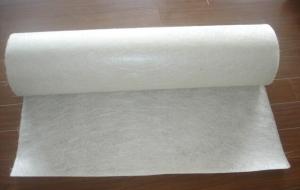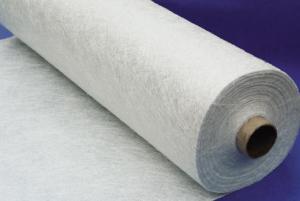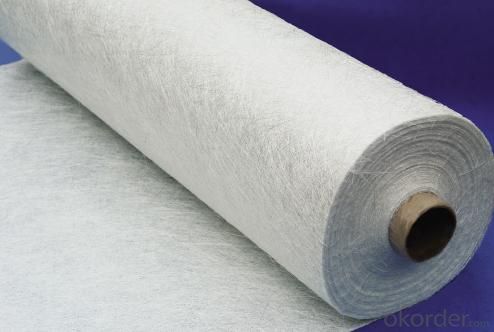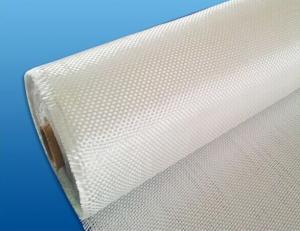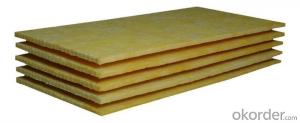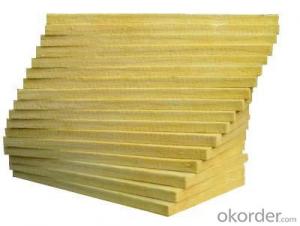Fiberglass Mat Tissue 'Moscow Spot' High Quality Glass Wool Mat
- Loading Port:
- China Main Port
- Payment Terms:
- TT or LC
- Min Order Qty:
- -
- Supply Capability:
- 25000kg kg/month
OKorder Service Pledge
OKorder Financial Service
You Might Also Like
Стекломат эмульсионный
Эмульсионный стекломат производится из Е-стекло ровинга,клиееного эмульсионным вяжущим,обладает хорошей способностью смачивания с полиэфирным,виниловым и эпоксидным смолам.
Продукты из данного стекломата преимущественно перерабатываются методами ручного формования,намотки и прессования, широко применяются для производства разных стеклопластиков,корпусов лодок,автомобильных запчастей и охлаждающих башен.
Мы поставляем стекломат 300г\450г\600г по ширине 1250мм !!!
Основные преимущества
1.Вследствие хорошей целостности достигает более высокого стеклосодержания и коэффициента армирования,чтобы повышает механической прочности стекпластика
2.Данный стекломат отличается хорошей целостностью и формуемкостью,малым выделением летучних веществ в процессе переработки;
3.Отличная гибность подходит к формованию
4.Быстрая и полная смачиваемость в смоле,малая потребность смолы преведут к снижению себестоимости производства,повышению производительности и механических свойств конечных продуктов.
Упаковка:
Стекломат намотан на бумажные патроны.Рулоны заворачиваются пластмассовыми плеками,уложены в бумажные коробки,или заворавиваются крафт-бумагой.Рулон должны положить горизонтально.В транспортировке рулоны могут прямо загружать в котейнеры или с помошью поддонов.
Добро пожаловать посетить наш склад !
Перечисленными свойствами обычно обладают маты, выработанные из нитей из "Е"-стекла, обработанных силановым связующим и склеенных полиэфирным связующим веществом. мы начали строить склады в Москве, Мы являемся государственные предприятия, мировая экономика пятьсот компаний,мы несем ответственность за таможенное оформление и транспортировку, Маты из рубленных нитей "Е" -стекла и Тканые ровинги, Маты из рубленных нитей "Е" -стекла (эмульсия), ширина 1250 мм, вес 42 килограмм в рулоне,
300 грамм /за квадратный метр, 450 грамм /за квадратный метр, 600 грамм /за квадратный метр,
Вы всегда можете пойти в мой склад, чтобы увидеть товары, проданных к вам, вы всегда можете посетить наш склад
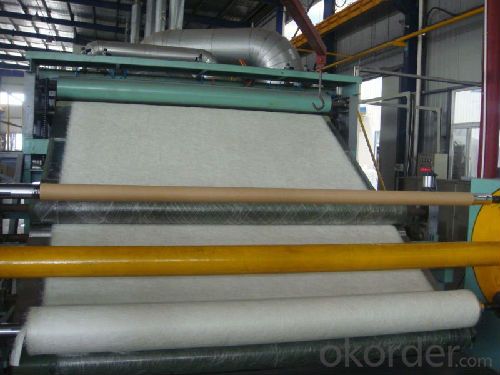
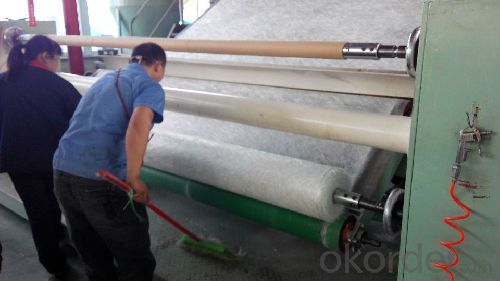
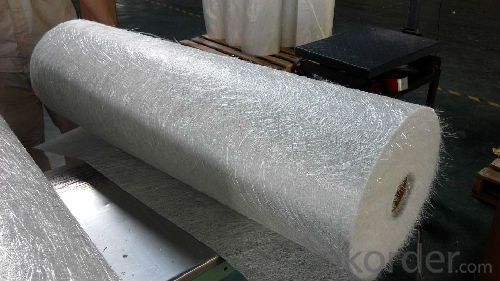
- Q: How is fiberglass mat tissue used in the production of chemical reactors?
- Fiberglass mat tissue is commonly used in the production of chemical reactors due to its exceptional properties. The mat tissue is made up of randomly oriented glass fibers, which are then bonded together with a binder material. This composition makes it an ideal material for the construction of chemical reactors. One of the primary uses of fiberglass mat tissue in chemical reactors is as a reinforcement material. The tissue is typically applied to the inner surfaces of the reactor to enhance its structural integrity. The combination of glass fibers and binder creates a strong and durable layer that can withstand the harsh conditions inside the reactor, such as high temperatures and corrosive chemicals. Additionally, fiberglass mat tissue also acts as a barrier against chemical attack. Chemical reactors often contain aggressive substances that can degrade traditional materials. However, the chemical resistance of fiberglass mat tissue makes it highly suitable for such environments. It effectively prevents the corrosive chemicals from penetrating the reactor walls, ensuring the longevity and reliability of the equipment. Furthermore, fiberglass mat tissue can also provide thermal insulation properties to chemical reactors. This is particularly important in processes where temperature control is crucial. The insulation properties of the tissue help maintain the desired temperature inside the reactor, preventing heat loss or gain, which could affect the efficiency and consistency of the chemical reactions. In summary, fiberglass mat tissue plays a vital role in the production of chemical reactors by reinforcing the structure, providing chemical resistance, and offering thermal insulation. Its unique properties make it an excellent choice for ensuring the durability, safety, and optimal performance of chemical reactors in various industrial applications.
- Q: How does the density of fiberglass mat tissue impact its performance?
- The performance of fiberglass mat tissue is significantly impacted by its density. This nonwoven material is made up of glass fibers that are randomly dispersed and held together by a binder. Density refers to the number of fibers present in a given volume of the material. Increased density of fiberglass mat tissue generally leads to enhanced mechanical properties and performance. The higher density means there are more glass fibers in each unit volume, resulting in improved strength, stiffness, and durability. This makes the material more resistant to tearing, puncturing, and abrasion, which is especially important in applications where the tissue is exposed to harsh conditions or heavy loads. Furthermore, higher-density fiberglass mat tissue offers superior thermal insulation properties. The increased fiber content allows for better heat resistance, making it suitable for applications that require thermal protection, such as insulation boards or fireproofing materials. Conversely, lower density of fiberglass mat tissue can offer advantages in certain applications. Lower-density tissues are generally more flexible and have better conformability, allowing them to easily adapt to irregular surfaces or complex shapes. This makes them suitable for applications where flexibility or conformability is a primary requirement, such as in the automotive or aerospace industries. In conclusion, the density of fiberglass mat tissue is critically important in determining its performance characteristics. Whether a higher or lower density is preferred depends on the specific requirements of the application, taking into account factors such as strength, stiffness, durability, thermal insulation, flexibility, and conformability.
- Q: What is the specific gravity of fiberglass mat tissue?
- The specific gravity of fiberglass mat tissue typically ranges between 1.5 and 2.0.
- Q: Can fiberglass mat tissue be used for repairing fiberglass boats?
- Yes, fiberglass mat tissue can be used for repairing fiberglass boats. It is commonly used in boat repairs to reinforce weak or damaged areas and provide strength and durability to the repaired sections.
- Q: Is fiberglass mat tissue suitable for insulation in laboratories?
- Yes, fiberglass mat tissue is suitable for insulation in laboratories. It offers excellent thermal insulation properties, is resistant to high temperatures, and provides effective sound insulation. Additionally, it is non-combustible and chemically inert, making it ideal for laboratory environments where safety and performance are crucial.
- Q: Can fiberglass mat tissue be used for electrical insulation?
- Fiberglass mat tissue can indeed serve as electrical insulation due to its impressive properties. Composed of fine glass fibers, this non-woven fabric possesses exceptional electrical insulation capabilities. Its ability to endure high temperatures and exhibit a high dielectric strength renders it ideal for a range of electrical applications. For instance, it finds regular use as an insulation material in electrical transformers, motors, generators, and other electrical equipment. By creating a barrier that hinders the passage of electrical current, the fiberglass mat tissue safeguards the components against potential electrical shocks or short circuits. Moreover, it boasts resistance against moisture, chemicals, and UV radiation, thereby further enhancing its suitability for electrical insulation purposes.
- Q: How is fiberglass mat tissue used in the production of water tanks?
- Fiberglass mat tissue, a type of non-woven fabric made from glass fibers, is commonly used in the production of water tanks due to its excellent strength, durability, and resistance to corrosion. Water tanks are typically made from fiberglass reinforced plastic (FRP), which is a composite material consisting of a polymer matrix reinforced with fiberglass. The fiberglass mat tissue plays a crucial role in this process as it serves as the reinforcement material. Firstly, the fiberglass mat tissue is cut into the desired shape and size to fit the mold of the water tank. It is then layered onto the mold, with the number of layers depending on the required strength and thickness of the tank. Once the fiberglass mat tissue is in place, a resin matrix is applied to impregnate and bind the fibers together. This resin can be polyester, vinyl ester, or epoxy, depending on the specific requirements of the water tank. The resin is typically applied using a spray or a roller, ensuring that it thoroughly saturates the fiberglass mat tissue. This process is often repeated multiple times to build up the necessary thickness and strength of the tank. After the resin has cured, the fiberglass mat tissue and resin composite becomes rigid and forms the structure of the water tank. The resulting FRP tank is lightweight, yet incredibly strong and durable, making it an ideal choice for storing and transporting water. The use of fiberglass mat tissue in water tank production provides several advantages. Firstly, it enhances the structural integrity of the tank, allowing it to withstand external forces such as pressure and impact. Secondly, fiberglass is highly resistant to corrosion, ensuring that the tank remains in good condition even when exposed to harsh environmental conditions or corrosive substances present in the water. Overall, fiberglass mat tissue is a critical component in the production of water tanks, providing strength, durability, and corrosion resistance, making it a reliable choice for various industrial, commercial, and residential applications.
- Q: What is the tensile strength of fiberglass mat tissue?
- The tensile strength of fiberglass mat tissue varies depending on its specific composition and thickness, but it is generally known to have high tensile strength ranging from 200 to 600 MPa (megapascals).
- Q: Is fiberglass mat tissue recyclable?
- Yes, fiberglass mat tissue is recyclable. Fiberglass is made from a combination of glass fibers and a binder material, usually resin. When the material is no longer needed or has reached the end of its life cycle, it can be recycled by separating the glass fibers from the binder material. The glass fibers can then be melted down and used to create new fiberglass products, while the binder material can be treated and reused in other applications. Recycling fiberglass mat tissue helps to reduce waste and conserve natural resources, making it an environmentally friendly option.
- Q: Can fiberglass mat tissue be used for ballistic protection?
- No, fiberglass mat tissue cannot be used for ballistic protection. It is not designed or tested to withstand the high-velocity impact of bullets or projectiles. Ballistic protection requires specialized materials such as Kevlar, aramid fibers, or ceramic plates that are specifically engineered to provide adequate protection against ballistic threats.
Send your message to us
Fiberglass Mat Tissue 'Moscow Spot' High Quality Glass Wool Mat
- Loading Port:
- China Main Port
- Payment Terms:
- TT or LC
- Min Order Qty:
- -
- Supply Capability:
- 25000kg kg/month
OKorder Service Pledge
OKorder Financial Service
Similar products
Hot products
Hot Searches
Related keywords
